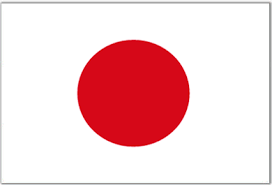Chemycal has been acquired by 3E
Learn MoreChemycal has been acquired by 3E
Learn MoreDiscover how Chemycal PRO helps you boosting your regulatory monitoring:

In a recent development, Japan has officially designated three chemical substances, Methoxychlor, DecaBDE, and UV-328, as restricted Type 1 Specified Chemical Substances under Japan's Chemical Substances Control Law (CSCL). The decision was made in response to the 11th Conference of the Parties to the Stockholm Convention Treaty held in May 2023, where these substances were added to Annex A (Elimination) of the treaty.
Where These Substances Are Used:
Methoxychlor: Methoxychlor is an organochlorine pesticide commonly used in agriculture to control a variety of pests. It has also been used in household insecticides and animal husbandry.
DecaBDE (DecaBromodiphenyl Ether): DecaBDE is a flame retardant chemical widely used in electronics, textiles, and plastics to reduce the flammability of products.
UV-328: UV-328 is a UV stabilizer and anti-oxidant used in plastics, coatings, and various other industrial applications to prevent the degradation of materials caused by ultraviolet radiation and oxidation.
Possible Impacts on Industry:
The designation of these substances as restricted Type 1 Specified Chemical Substances under Japan's Chemical Substances Control Law (CSCL) will have several impacts on the industry:
Import Restrictions: Importation of products containing these restricted substances will be prohibited, potentially affecting industries that rely on products with these chemicals as ingredients.
Usage Limitations: Except for specific approved purposes, the use of these substances in manufacturing and other processes will be restricted. Businesses that rely on these chemicals may need to seek alternative materials or processes.
Compliance with Technical Standards: Companies involved in the manufacture or handling of these restricted substances will need to adhere to technical standards outlined in the CSCL to ensure safe handling and disposal.
Economic Implications: Industries related to agriculture, electronics, textiles, plastics, and others may experience changes in their supply chains and production processes due to the restrictions, potentially impacting costs and profitability.
The implementation of these new regulations is expected to occur in autumn 2024, following further discussions and amendments. Businesses affected by these changes are urged to closely monitor developments and prepare for compliance with the forthcoming restrictions
2013 © MyChemicalMonitoring. ALL Rights Reserved. About Us | Terms and Conditions